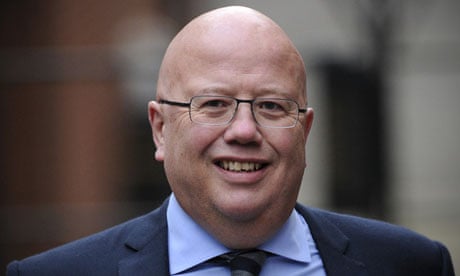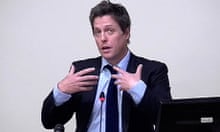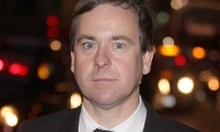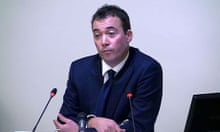The plagiarism scandal involving columnist and interviewer Johann Hari "severely damaged" the reputation of the Independent, the paper's editor has admitted at the Leveson inquiry.
Four months after Hari apologised, Chris Blackhurst said the affair had caused "profound" shock among his colleagues. He revealed that Hari, who took unpaid leave in September and has been on a journalism ethics course in New York, would be returning to the paper in "four or five weeks" but as a columnist and not as an interviewer.
Hari was suspended in September after admitting to plagiarism and changing the Wikipedia entries of rival journalists using a false name.
Blackhurst told the inquiry: "His reputation has been very, very severely damaged; the Independent's reputation in terms of Johann Hari has been severely damaged."
The former City editor of the London Evening Standard took over as editor of the Independent just days after the Hari scandal blew up in July and he called in the paper's co-founder, Andreas Whittam Smith, to investigate.
"What I would want to stress was the shock this caused, enormous shock to myself who had prior to this had mainly been an observer, an admirer of Johann Hari, but much deeper shock to his colleagues on the Independent. It was really profound and totally unexpected," Blackhurst told Leveson.
He said the paper had had "no inkling" about Hari's habit of pilfering quotes for his star interviews as none of his subjects or readers had brought it to the paper's attention.
Nor, he said, had he any knowledge that "Johann Hari was messing about on the internet under a false name amending people's Wikipedia entries".
Blackhurst said that while Hari's betrayal of readers' trust was bad, it was not on the same level as the Jayson Blair scandal at the New York Times. "In terms of plagiarism it wasn't as stark and severe as the Jayson Blair case. He wasn't fabricating hard news," said Blackhurst.
He said Hari's columns will be closely monitored and scrutinised when he returns and if he sets a foot wrong he will be sacked.
"He won't be interviewing people. He understands, I hope he understands, if anything arises that damages the paper's reputation, then I'm afraid that's it."
Blackhurst added: "Everything he writes will be heavily looked at [internally], as I'm sure it will be by the outside world. There's a whole Twitter community our there who probably can't wait for him to start writing again."
Since his suspension, Hari has travelled to New York at his own cost, studying ethics at Columbia University.
Blackhurst said he would like to see a future regulatory system that would deal with incidents such as the Hari affair.
The new regulator should operate like the Law Society or the General Medical Council and have the power to sanction members – journalists – who breached codes, he added.
Lord Justice Leveson pointed out that this would be legally problematic as the state decides who can practise as a doctor or a solicitor, but all journalists do is exercise their right to freedom of expression.
Blackhurst said he was not in favour of statutory regulation but would support an independent arbitration system that would deal with legal disputes, give quick resolution to those who feel they have been wronged and reduce libel costs for newspapers.
But he told Leveson his worst fear is that the "ability as an industry to investigate will be curtailed" by the inquiry, citing as an example the News of the World's uncovering of cricket corruption.
To contact the MediaGuardian news desk email editor@mediatheguardian.com or phone 020 3353 3857. For all other inquiries please call the main Guardian switchboard on 020 3353 2000. If you are writing a comment for publication, please mark clearly "for publication".







